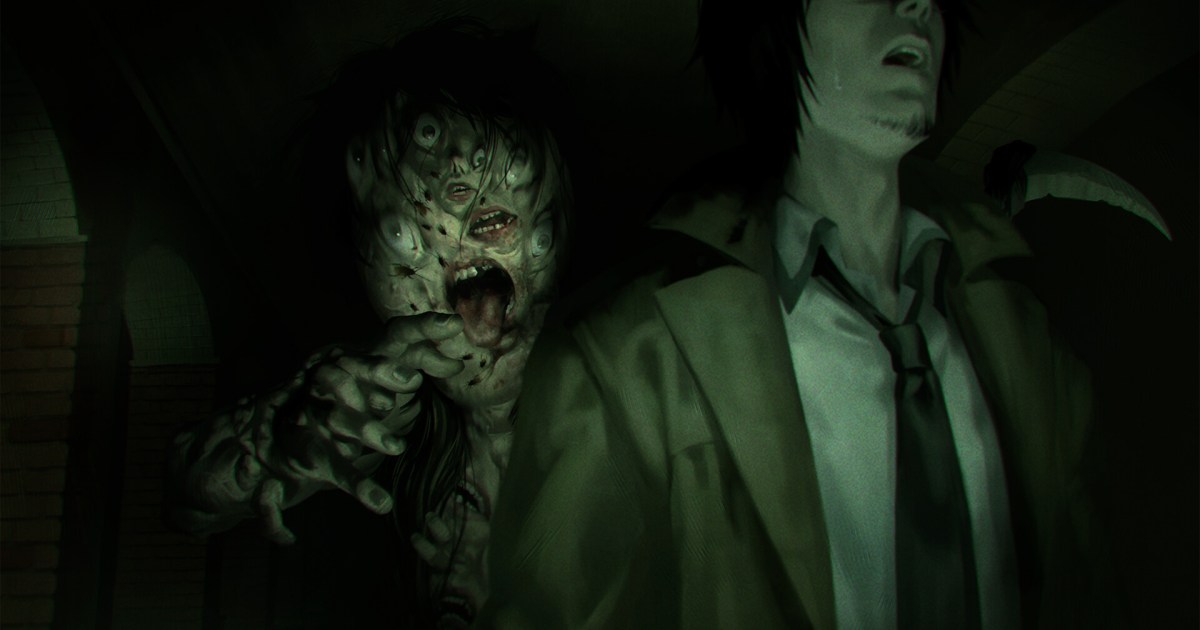I’ve always been enamored with Japanese horror.
Its psychological focus frightens me more than Western interpretations of horror, which tend to focus more on violence and physicality horror. While games like Silent Hill 2 and Resident Evil 4 emphasize action gameplay, visual novels are also a great way to deliver scary horror stories. It’s akin to reading a scary book.
The genre originated in Japan and has immense popularity. Visual novels bear similarities to manga, which also has its roots in the country, so it’s no surprise that video game developers have used visual novels as another medium for its unique brand of horror.
However, reading mountains and mountains of text can turn away players. But one game this year, Spirit Hunter: Death Mark II, avoids these visual novel pitfalls by the developers sprinkling in some light classic RPG elements. It’s a story worth experiencing if you’re looking for a brisk adventure to close out October on Halloween.
Spooky school
Schools are a staple setting in Japanese horror stories, and Death Mark II’s detective protagonist Kazuo Yashiki is hired as a teacher to investigate why students have gone missing and track down any paranormal abnormalities. Eventually, Kazuo learns about a strange creature called The Departed, who seems to be responsible for these disappearances. In an effort to find out its identity, Kazuo has to learn more about the school’s dark past.
What makes the Spirit Hunter series such a great experience is that it doesn’t overstay its welcome. Like its predecessors, Spirit Hunter: Death Mark and Spirit Hunter NG, Death Mark II clocks in at about 15 hours across seven chapters. It’s a well-paced story filled with plenty of plot twists that’ll keep you going even if you’re scared to death.

Death Mark II is also enhanced by its fantastic art direction. While the 2D character portraits are static stills, much of the artistic effort went into depicting its gruesome death scenes. Throughout the story, Kazuo will unfortunately not be able to prevent everyone from dying. Whether it’s a myriad of scissors protruding out of a victim’s skin or water hoses bulging out from eye sockets, the game will show a beautifully disgusting portrait of the victim’s cause of death.
The way Death Mark II handles body horror is impressive, as it deals with much less blood than you’d expect from a horror game. The artistic nature of these death scenes actually had me staring at the victims instead of looking away. I couldn’t help but admire the detail that went into them. It even got to the point where I didn’t recoil at seeing a character’s severed head!
However, one criticism I have is that there is a lack of voiced dialogue throughout most of the game. While I understand that developer Experience is a smaller company than most, a voice track could’ve immensely helped with immersion. When the characters encounter a dead body, they sometimes scream or recoil in horror. The issue is that none of that is voiced, so I have to imagine the screaming in my head instead of actually hearing it. It’s a shame, as even isolated screams could’ve added more tension to the atmosphere.
Gamifying the experience
Experience’s portfolio consists of first-person dungeon crawlers such as Demon Gaze, New Tokyo Legacy, and Stranger of Sword City that are similar to old-school Wizardry games. Even though Spirit Hunter is a slight departure from Experience’s usual repertoire, the developer included some light RPG and elements so that the series wouldn’t be a purely text-based visual novel.
For starters, Kazuo can run around the school in a 2D side-scrolling fashion to explore the different rooms and find various items to help him. These can be things like shovels and pens that he can use for later encounters against hostile spirits. At certain points, he’ll go up against these spirits in a sort of battle like an RPG called Suspense Acts.

For example, Kazuo can throw a uniform he found in the storage room at the spirit, hindering its aggression toward him. Then, he can create a distraction by poking a broken mop at its face before pacifying it by singing a song. While this might all sound convoluted, the correct actions to take can be deduced by the lore you learn from picking up different items and the conversations you have with characters around the school. It’s important to pay attention to what the spirits were like in their past lives and use that to inform your own choices during encounters against them.
There’s another layer of gameplay where Kazuo can find small souls in the form of individual teeth that he can trade in for buffs, which include things like decreasing the amount of spirit damage he takes from enemies, as well as reducing the amount of spirit energy required to perform certain actions in battle. This incentivizes players to meticulously explore the school and examine every corner, and rewards them for doing so. It’s these small details that make Spirit Hunter stand out from other visual novels.
The Spirit Hunter games are fantastic entry points for those who want to dip their toes into Japanese horror visual novels. Thankfully, Spirit Hunter: Death Mark II has a self-contained story and doesn’t require you to play the previous entries to understand what’s going on. The RPG elements also provide a small taste of Experience’s other games that have heavier emphasis on that. Playing Spirit Hunter: Death Mark II is a great way to start Halloween and end this October by becoming a visual novel fan.
Read the full article here















